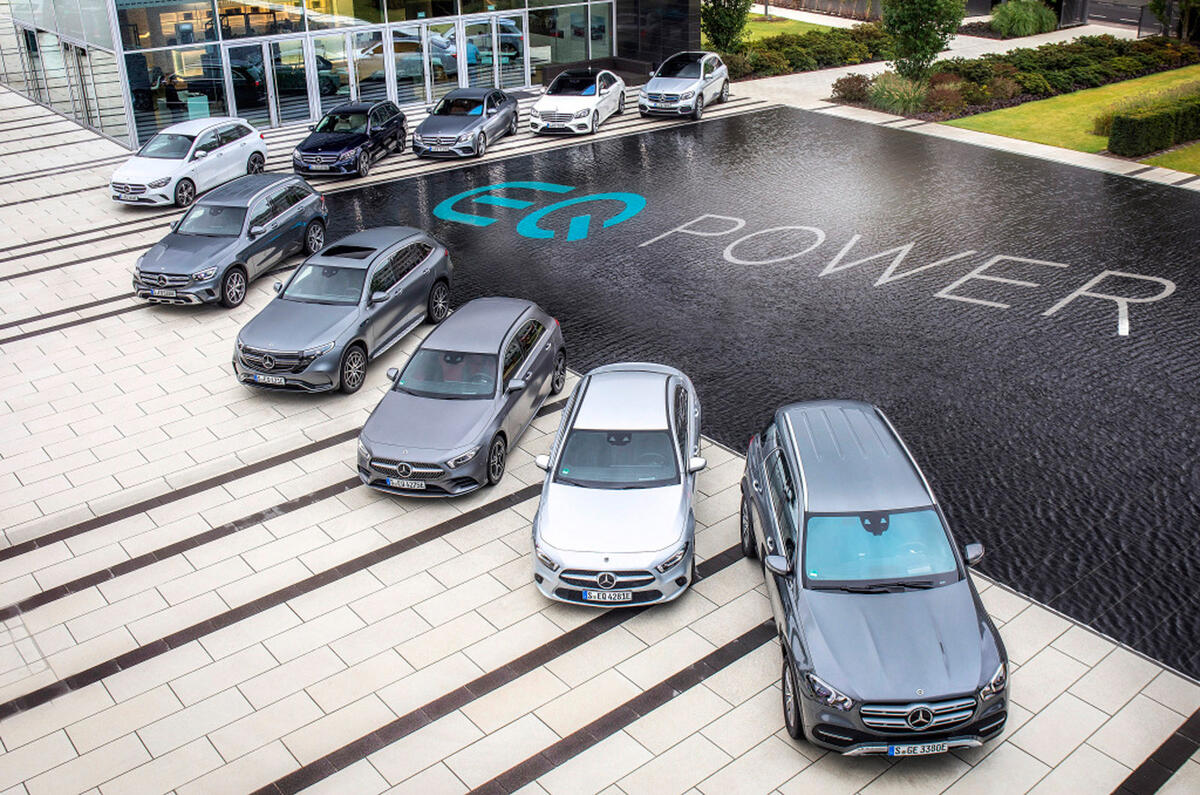The use of synthetic fuels in cars isn’t viable in the mid-term, according to Mercedes research and development boss Markus Schäfer, who said the firm is focusing investment on electrifying its cars.
While some manufacturers – such as Bentley, Mazda, McLaren and Volkswagen – are seriously researching synthetic fuels as a credible alternative to petrol and diesel as well as newer and cleaner alternatives, Schäfer said Mercedes won’t go that way.
“We have made a clear decision that our way will be electric first,” he said. “When we develop new platforms, we think electric first. We have to watch regulations and customer behaviour, but this will be our main road.”
Explaining his reservations concerning synthetic fuels, Schäfer said: “If you have an abundance of energy, the best use is to put it directly into a battery. To transform green energy into an e-fuel is a process where you lose a lot of efficiency.
“If there were more clean energies available, then the first customers would probably be in the aviation industry. Far, far later – I don’t see this in the next 10 years – will come the car industry.”
Mazda’s research on the topic is around recyclable liquid fuels made from microalgae, while McLaren is looking at a CO2-neutral synthetic fuel to power its V8.
Audi got as far as producing its own synthetic petrol and diesel for testing in 2018, while Volkswagen’s technical chief recently said that such fuels will extend the life of the combustion engine, despite the VW Group’s huge investment in electrification.
READ MORE
McLaren advocates synthetic fuel as alternative to EVs
Volkswagen: Combustion engine has life in it yet
Mercedes-Benz: organic batteries a 'very promising' technology





Join the debate
Add your comment
The main cost of synthetic fuel is renewable electricity. It has dropped a lot in price and will continue to become cheaper. Some places it is more than 15X as cheap as the average electricity you use at home to charge your electric vehicles. So it doesn't make sense to pretend that synthetic fuels will be made locally, with scarce, government-provided expensive renewable electricity.
Transporting the cheapest electricity to other countries is not economical either, but using it to make synthetic fuel is perfect (also because of the cyclical nature of renewables). It will also boost the demand for renewable energy, bringing costs further down for other industries also.
Looking at efficiency alone is simplistic and doesn't show the whole picture. What matters most is cost and demand. The Mercedes boss sounds like a simple man that thinks the amount of renewable electricity is static and cannot increase with increasing demand and lower costs. Or he is just spreading propaganda to sell electric vehicles.
The fact is that you need to cover 1% of the Saharan dessert to get enough electricity for the entire Earth! So renewable electricity is virtually limitless on a global scale. Maybe in socialistic Germany they have to ration electricity. But on a global scale (which synthetic fuel will be), the market is essentially free, and people can build as much solar and wind as we will ever need. There will be new "oil-nations" with abundant cheap renewables that export synfuels to the rest of us.
It is definitely coming to the aviation industry and to shipping (because batteries are decades or centuries away from being good enough). When people see how cheap it is, cars will start using it too. But the cleanest way is bev cars (with small batteries), but with turbine generators as range extenders (like Wrightspeed and Techrules).
I think the problem is not
I think the problem is not the fuel, but that it would be used in ICE cars, and the EU want rid of them. furthermore the more people globally using EVs, the more cheap petrol will be available for the rest of the world. I wonder if synthetic fuel can be made as cheaply as low cost petrol?
artill wrote:
Yes,
Firstly China, the EU and to a lesser extent the US all want to move to EVs, that is the majority of worlds car sales. Much of the developing world uses hand me down cars rather than new purchases.
Secondly if the oil price is low it means that there is minimal scope for exploration (this includes creating new fuels). It might never come back as when the economy comes back ICE cars are being widely replaced.
Thirdly EVs are likely to impact the petrol distribution network as they replace petrol cars. As they drive garages into closure the distribution network becomes less widespread and thus less useful. This is a classic death spiral.
In less mature markets who is going to start building petrol stations, pipelines and creating tanker fleets when it is obvious that all cars will be electric.
I am not an expert but
Didnt the German army develop and use synthetic fuel during WW2?
Surely with 70 years of technological advancements it cant be that difficult.
You got there before me...
You got there before me...
Citytiger wrote:
They made petrol out of coal, this somewhat defeats the modern objective being much more carbon intensive than making petrol out of oil.